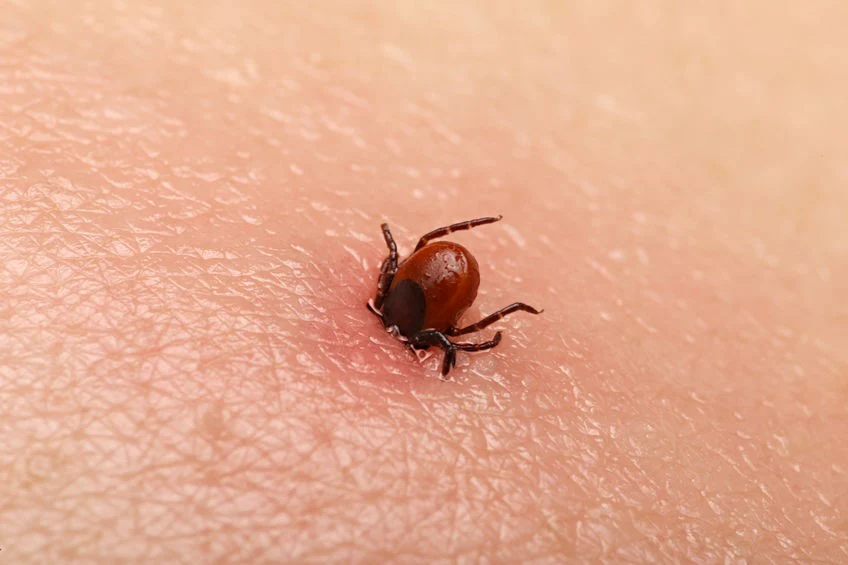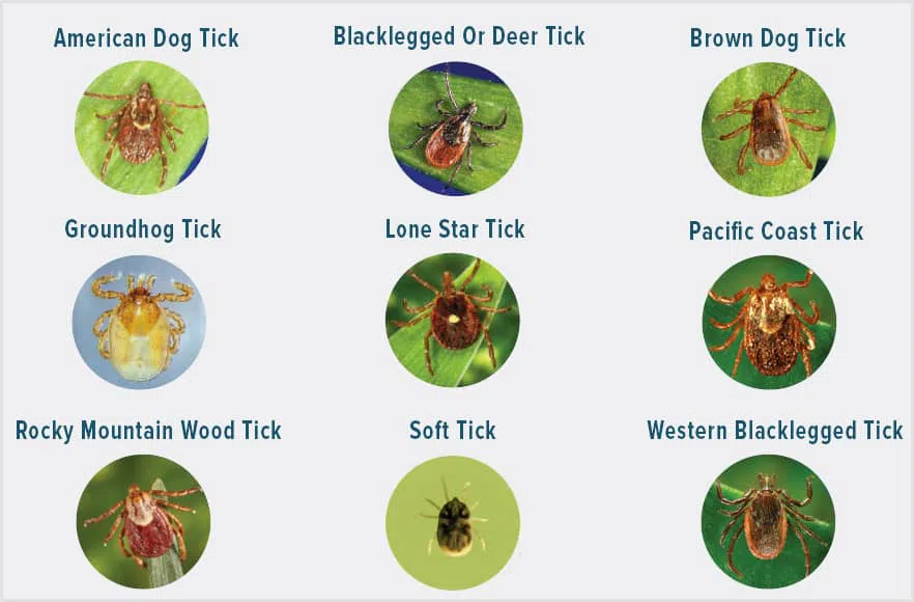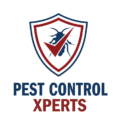Tick Treatments in Florida
Exterminator Services for Tallahassee, Quincy, Crawfordville
Tick Control and Removal in Tallahassee, Florida, Pest Control Xperts
Tallahassee is known for its beautiful canopy roads and lush green spaces, but this dense vegetation also makes our area a haven for ticks. We help homeowners and outdoor enthusiasts in Tallahassee, Quincy, and Crawfordville protect their families and pets from these dangerous parasites. Unlike other pests that simply annoy you, ticks carry serious pathogens like Lyme disease and Rocky Mountain Spotted Fever. Whether you have found a tick on your child after playing in the backyard or are dealing with a severe Brown Dog Tick infestation inside your home, our team provides specialized tick control services. We prioritize rigorous pest inspection and safe pest management practices to reduce the population and lower the risk of tick-borne illness. When you need to enjoy your yard without fear, we are here to create a safer environment for you.
Tick Problems We Solve in Tallahassee
In the Florida Panhandle, tick season is practically year-round due to our mild winters. Ticks require high humidity to survive, making the shaded, wooded lots common in neighborhoods like Killearn and Southwood ideal habitats. Many homeowners make the mistake of thinking ticks fall from trees; in reality, they “quest” on tall grass and shrubs, waiting to latch onto passing hosts. We focus on comprehensive outdoor pest control that targets these specific waiting zones. Effective pest management requires identifying the tick species, as the strategy for a Lone Star Tick in the yard differs vastly from a Brown Dog Tick breeding behind your baseboards. Our team utilizes advanced application methods to create a protective buffer around your living space.
Common signs of a tick issue:
- Finding ticks attached to family members or pets after being in the yard
- Small, dark bumps on your pet’s skin, often around the ears or paws
- sightings of ticks crawling on walls or curtains (indicates indoor breeding)
- “Seed ticks” (larval clusters) looking like tiny specks of dirt on clothing
- Red “bullseye” rashes on skin (seek medical attention immediately)
- Pets scratching or biting at their fur excessively
- Sightings of wildlife like deer, raccoons, or opossums in your yard
- Unexplained fever or lethargy in pets

Types of Tick Issues We Handle
Yard and Perimeter Defense
For most homeowners, the battle against ticks is fought in the backyard. Ticks thrive in the “ecotone”—the transition area where the manicured lawn meets the wood line or heavy brush. This is where they wait for a host. Controlling them requires treating these specific zones rather than just spraying the middle of the grass.
What we look for during inspection:
- Overgrown shrubbery and tall grasses near the home
- Leaf litter accumulation under trees (a prime breeding ground)
- Areas of high moisture and deep shade
- Wildlife trails crossing the property
How we approach treatment
We apply targeted treatments to the perimeter vegetation, focusing on the underside of leaves where ticks hide. We create a treated barrier that eliminates ticks on contact and repels new ones from entering the “safe zone” of your lawn. We also utilize granular products in deep leaf litter to reach the larval stages that sprays might miss.
Brown Dog Tick Infestations (Indoor)
While most ticks live outside, the Brown Dog Tick is unique because it can complete its entire life cycle indoors. This species can infest a home just like cockroaches or bed bugs, hiding in cracks, curtains, and behind baseboards. They often crawl up walls and are found near the ceiling. This is a severe issue that requires specialized indoor pest control.
What we look for during inspection:
- Ticks crawling on walls, especially near crown molding
- Clusters of ticks in corners of the room where the dog sleeps
- Activity behind door frames and window casings
- Ticks hidden in the crevices of kennels or crates
How we approach treatment
This requires a completely different strategy than outdoor control. We treat the cracks and crevices of the home where these ticks hide. We often recommend a coordinated effort where the pet is treated by a vet on the same day we treat the home. We may also use growth regulators to stop the eggs from developing.
Wildlife Management and Host Reduction
Ticks are often brought onto your property by wildlife. A single deer can carry hundreds of ticks, dropping them into your grass as it passes through. Rodents like mice and chipmunks are the primary reservoirs for Lyme disease. Managing the tick population requires managing the wildlife traffic in your yard.
What we look for during inspection:
- Deer trails or bedding areas near the home
- Bird feeders that spill seed and attract rodents
- Gaps in fences allowing wildlife access
- Rodent burrows in the garden
How we approach treatment
We integrate pest prevention into our plan. We may place “tick tubes”—biodegradable tubes filled with treated cotton—around the property. Mice take this cotton to build their nests, killing the ticks on them without harming the mouse. This effectively treats the source of the problem in the wild.

Our Tick Inspection and Treatment Approach
Successful tick control is about habitat modification and targeted application. When we arrive, we perform a detailed pest assessment services review. We walk your property to identify the “hot spots”—the shaded, humid areas where ticks are most likely to survive. We check the perimeter of the woods, the garden beds, and the areas where your pets play.
Our treatment plan utilizes integrated pest management. We do not blanket spray the entire lawn unnecessarily, as ticks rarely survive in sunny, short grass. Instead, we target the vegetation barriers. We prioritize safe pest management, selecting products that are effective against arachnids but pose minimal risk to non-target organisms. We also consider the timing of the treatment to coincide with the peak activity of nymphal ticks, which are small and difficult to see.
We believe in long-term protection. Ticks are not a one-time problem; they are a seasonal pressure. Our comprehensive pest solutions often involve recurring services during the peak season to ensure the barrier remains strong against re-invasion.

Tick Prevention and Landscaping Tips
You can make your property far less attractive to ticks by modifying the landscape. Ticks dry out and die in low humidity. By increasing sunlight and airflow, you create a hostile environment for them.
Preventative steps that actually help:
- Keep grass mowed short; ticks do not like direct heat
- Create a 3-foot wide barrier of wood chips or gravel between lawns and wooded areas
- Remove leaf litter and brush piles immediately
- Prune tree branches to let more sunlight onto the lawn
- Move swing sets and sandboxes away from the woodland edge
- Stack wood neatly and in a dry area to discourage rodents
- Consider installing a deer fence to keep large hosts out
- Remove plants that attract deer (like hostas) near the house
Residential and Commercial Tick Services
We provide tick control for residential homes, ensuring your backyard is safe for barbecues and playtime. We understand the worry parents feel about tick-borne diseases, and we work hard to provide peace of mind. Our treatments are designed to be low-impact on your lifestyle while delivering maximum impact on the pests.
We also serve commercial clients, including parks, campgrounds, doggy daycares, and outdoor wedding venues. In these settings, a tick bite can lead to liability and bad reviews. We offer commercial pest services that include perimeter treatments and event-specific sprays. Our goal is to protect your guests and your business reputation.
Professional Tick Control vs DIY Methods
Many homeowners try to control ticks with standard bug sprays from the hardware store. These products often fail for several reasons. First, the active ingredients are often not strong enough or formulated correctly to penetrate the hard shell of a tick. Second, homeowners often spray the wrong areas, treating the grass instead of the brush line.
Professional tick removal involves using high-pressure misting equipment that turns leaves over, ensuring the product coats the underside where ticks hide. We also have access to granular products that penetrate deep into leaf litter where larvae overwinter. Dealing with an indoor infestation of Brown Dog Ticks is notoriously difficult and almost always requires professional intervention to break the reproductive cycle. We have the expertise to identify the species and apply the right solution, saving you time and reducing health risks.
Frequently Asked Questions About Tick Control
Do you provide tick control in Tallahassee and nearby areas?
Yes, we serve the entire Tallahassee metro area, including Quincy, Crawfordville, and the surrounding rural communities. We are experts in managing the tick species found in North Florida.
What diseases do ticks in Florida carry?
Local ticks can carry Lyme disease, Ehrlichiosis, Rocky Mountain Spotted Fever, and Southern Tick-Associated Rash Illness (STARI). Preventing bites is the best defense against these illnesses.
How often do you need to treat for ticks?
During the peak season (spring through fall), we typically recommend monthly services to maintain the protective barrier. However, treating for indoor Brown Dog Ticks requires a specific, intensive schedule.
Can ticks live inside my house?
Most species (like Deer Ticks and Lone Star Ticks) cannot survive long indoors due to the dry air. However, the Brown Dog Tick *does* survive and breed indoors. Identification is key to knowing which problem you have.
Are the treatments safe for my pets?
Yes. We use products approved for use in residential yards. We will advise you to keep pets inside while we treat and until the product has dried. Once dry, it is safe for them to return to the yard.
Why do I see ticks in the winter?
In Tallahassee, our winters are rarely cold enough to kill ticks. Adult black-legged ticks are actually active on days when temperatures are above freezing. Year-round awareness is important.
Do you remove ticks from my dog?
No, we treat the environment (home and yard). You should see your veterinarian for tick removal from the animal and for preventative chews or collars.
Is there a local tick removal service near me?
If you are in Leon, Gadsden, or Wakulla counties, Pest Control Xperts is your local provider. We are nearby and ready to help you reduce the tick population.
Service Area for Tick Control in and Around Tallahassee, Florida
We are dedicated to protecting the health of our community. Our service area covers the capital city and the surrounding towns where dense vegetation makes tick control a necessity.
- Tallahassee
- Quincy
- Crawfordville
- Midway
- Havana
- Woodville
- Wakulla Springs
- Miccosukee
Local service means we understand the specific habitats in our region. From the pine forests to the coastal scrub, we know where ticks hide and how to stop them.
Zip codes we serve: 32301, 32303, 32304, 32308, 32309, 32310, 32311, 32312, 32317, 32327, 32351
